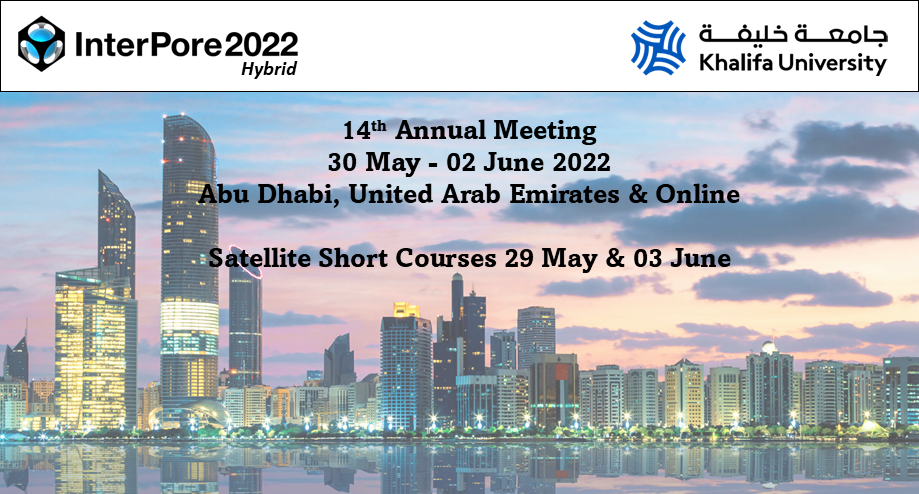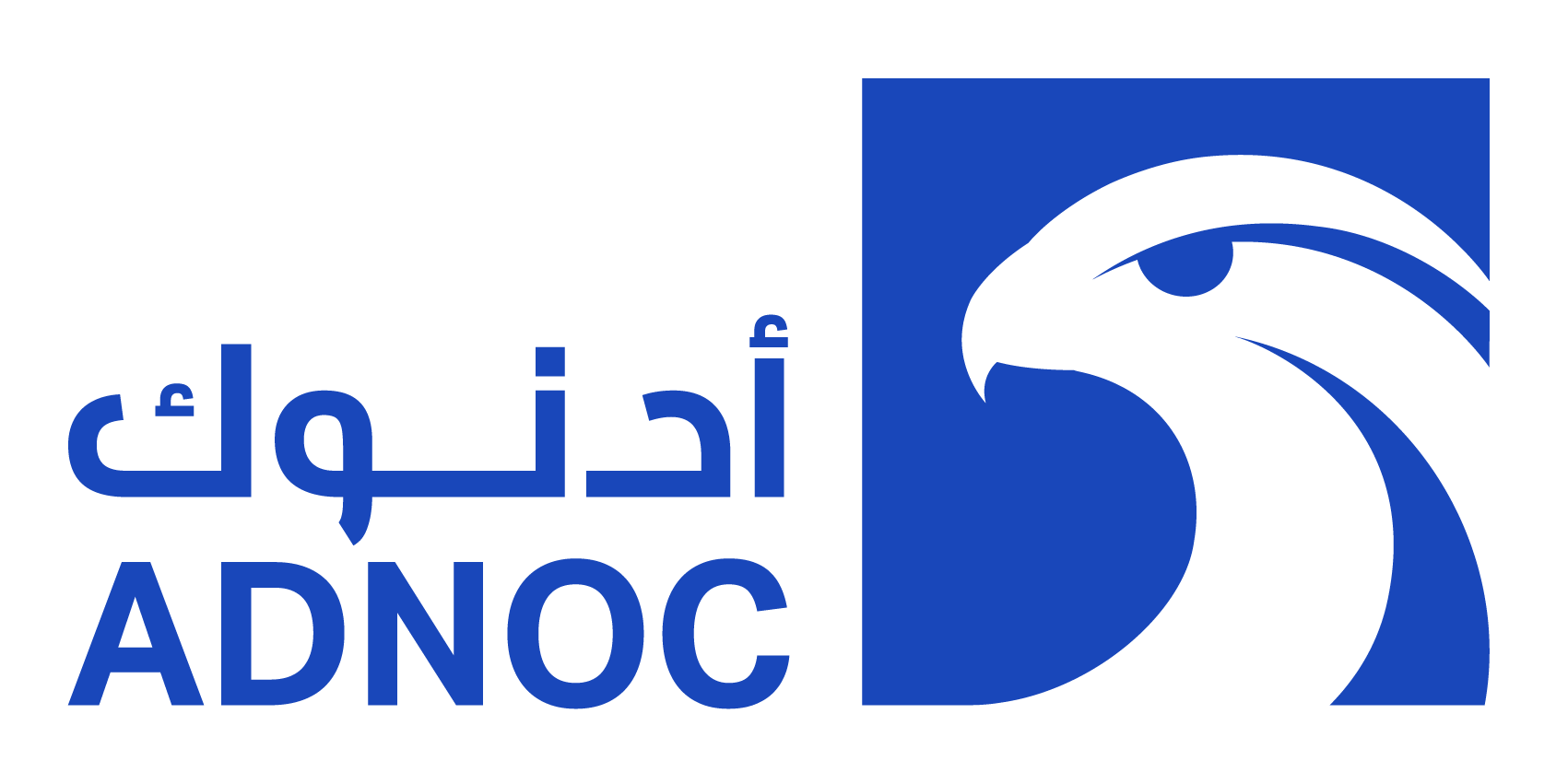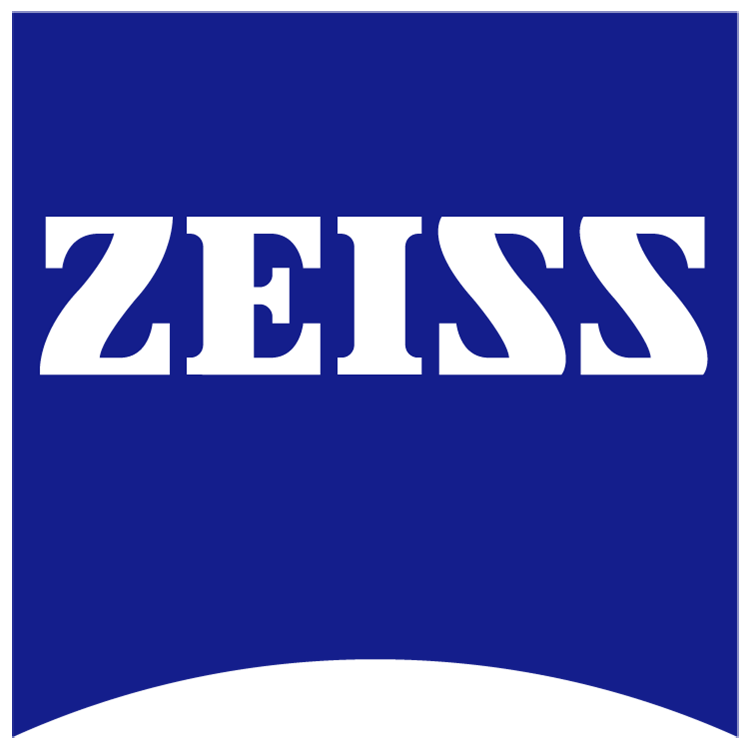Recent Advances in Multiphase Microfluidics for Energy Applications
Special issue in MDPI energies: Deadline for manuscript submissions: 20 November 2022
Transport in Porous Media
Special Issue of InterPore2022: Multi-scale and Multi-physics Processes in Geological Systems with Fractured Porous Media
Journal of Porous Media
Special Issue of InterPore2022: Multiphase Transport in Porous Structures
Advances in Geo-Energy Research
Special Issue of InterPore2022: Micro-nano Scale Fluid Flow Physics in Porous Media
Petroleum Science
Special Issue of InterPore2022: Uncertainty quantification and machine learning in porous media
Natural Gas Industry B
Special Issue of InterPore2022: porous structures and flow processes characterisation of gas reservoirs
Frontiers in Earth Science
Special Issue of InterPore2022: Applications of Artificial Intelligence in the Oil and Gas Industry
Journal of Contaminant Hydrology
Special Issue on innovative Methods for Characterization, Monitoring, and In-Situ Remediation of Contaminated Soils and Groundwater Systems
Frontiers in Water + Frontiers in Physics
Special Issue on Nonequilibrium Multiphase and Reactive Flows in Porous and Granular Materials
Frontiers in Earth Science
Special Issue on Digital Rock Physics and Machine Learning
MDPI energies
Special Issue "Recent Advances in Multiphase Microfluidics for Energy Applications"
Introduction
Energy production, conversion, transport and storage are large-scale systems. However, most of their primary processes involve multiphase flows and require a fundamental understanding of heat, mass and momentum transport on a micro scale. With the inherent advantages of small fluid sample requirement, precise operation control and higher analytical sensitivity, microfluidic technologies serve increasingly as important analytical tools in interrogating, understanding and consequently enhancing these fundamental processes leading to innovative advances in the broader energy field.
Papers focusing on addressing key issues in the field of experimental and computational multiphase microfluidics applied to energy production, conversion, transport and storage are encouraged. Contributions include a variety of topics such as enhanced oil recovery, hydraulic fracturing, carbon management (CO2 capture and storage), electrochemical energy conversion and storage, photocatalysis, photosynthesis, thermoelectric generators, solar cells, microbio-reactors and other related content.
Manuscript Submission Information
Manuscripts should be submitted online at www.mdpi.com by registering and logging in to this website. Once you are registered, click here to go to the submission form. Manuscripts can be submitted until the deadline. All submissions that pass pre-check are peer-reviewed. Accepted papers will be published continuously in the journal (as soon as accepted) and will be listed together on the special issue website. Research articles, review articles as well as short communications are invited. For planned papers, a title and short abstract (about 100 words) can be sent to the Editorial Office for announcement on this website.
Submitted manuscripts should not have been published previously, nor be under consideration for publication elsewhere (except conference proceedings papers). All manuscripts are thoroughly refereed through a single-blind peer-review process. A guide for authors and other relevant information for submission of manuscripts is available on the Instructions for Authors page. Energies is an international peer-reviewed open access semimonthly journal published by MDPI.
Please visit the Instructions for Authors page before submitting a manuscript. The Article Processing Charge (APC) for publication in this open access journal is 2200 CHF (Swiss Francs). Submitted papers should be well formatted and use good English. Authors may use MDPI's English editing service prior to publication or during author revisions.
Guest Editors
|
Guest Editor: |
Dr. Afshin Goharzadeh E-Mail Website Department of Mechanical Engineering, Khalifa University, 127788, Abu Dhabi, United Arab Emirates |
|
Guest Editor: |
Dr. Yit Fatt Yap E-Mail Website Department of Mechanical Engineering, Khalifa University, 127788, Abu Dhabi, United Arab Emirates |
Submission Deadlines and Guidelines:
Deadline for manuscript submissions: 20 November 2022
Authors who submit the papers from InterPore2022 conference into our Special Issue will have 10% discount.
Contact: stefan.milojevic@mdpi.com
Transport in Porous Media
Special Issue of InterPore2022: Multi-scale and Multi-physics Processes in Geological Systems with Fractured Porous Media
Website
Introduction
This special issue broadly invites submissions that present new experimental and analytical/numerical methods that focus on a broad area of flow and transport physics in fractured porous media.
Topics include but are not limited to:
(1)Digital rock reconstruction and analysis of fractured rocks
(2)Multi-scale flow, transport and mechanical processes in fractured reservoirs
(3)New concepts, theories, methods, experiments, and techniques in fractured reservoirs
(4)New analytical, numerical and experimental methods
(5)Modeling and meshing of fractured reservoirs
(6)Inverse modeling of fractured reservoirs
(7)Artificial intelligence aided computations in fractured reservoirs
Guest Editors
|
Lead guest editor: Wei Yu |
Hildebrand Department of Petroleum and Geosystems Engineering The University of Texas at Austin, USA |
|
Guest editor:
|
China University of Petroleum-Beijing, China E-mail: zhimingchn@cup.edu.cn |
|
Guest editor: Kamy Sepehrnoori |
Hildebrand Department of Petroleum and Geosystems Engineering The University of Texas at Austin, USA |
|
Guest editor: Bin Wang |
Louisiana State University, Craft and Hawkins Department of Petroleum Engineering Baton Rouge, USA |
Submission Deadline and Guidelines:
Submission deadline: 28 March 2022
Select S.I.: Geological Systems with Fractured Porous Media as the ‘Article Type’ during the submission process.
Journal of Porous Media
Special Issue of InterPore2022: Multiphase Transport in Porous Structures
Introduction
This Special Issue on “Multiphase Transport in Porous Structures” is devoted to presenting recent frontier and progress research in multiphase flow and phase change phenomena covering microscale, nanoscale, and macroscale research topics from all over the world. Researchers and experts are encouraged to submit research papers summarizing their continuing efforts to tackle various types of phase change phenomena in multiphase flow. Contributions dealing with phenomenological understanding, modeling, numerical simulations, as well as new experiments and experimental methods are very welcome.
Topics include but are not limited to:
(1) Microscale and Nanoscale Multiphase Flow and Phase Change Phenomena
(2) Heat and Mass Transfer Processes in Porous Media
(3) Multiphase Transport in Porous Media for Different Multiphase Problems of Gas-Solid, Solid-Fluid, and Liquid-Gas
(4) Fluid Flow, Migration and Diffusion Problems in Porous Media
(5) Fundamentals and Mechanisms of Nanofluid Multiphase Flow and Phase Change Phenomena
(6) Pore-scale or Multi-scale Numerical Simulation of Phase Change Process in Porous Media
(7) Coupling of Gas and Solid Phases for Reactive Heat/Mass Transfer in Porous Media
(8) Coupling of Base Fluid and Nanoparticles in Nanofluid Systems
(9) Novel Models, Methods and Algorithms of Simulating Multiphase Flow in Porous Media
(10) High Efficiency Fluid (Oil, Gas and Water) and Thermal Recovery of Porous Media
(11) Multiphase Flow and Phase Change Phenomena in Carbon Dioxide Utilization and Storage
(12) Thermal and Water management in PEM fuel Cells
Guest Editors
|
Lead Guest Editor: Hui-Jin Xu |
China-UK Low Carbon College, Shanghai Jiao Tong University Shanghai, China |
|
Guest Editor: Liu Yang |
China University of Mining and Technology Beijing, China |
|
Guest Editor: Chen Yang |
College of Chemical Engineering, Fuzhou University Fuzhou, China |
|
Guest Editor: Ren-Feng Yang |
CNOOC Research Institute Co., Ltd. Beijing China |
Submission Deadlines and Guidelines:
Submission Deadline: October 25th, 2022
Select Special Issue: “Phase Change, Interphase Coupling, and Multiphase Transport in Porous Structure (Guest Editors: Huijin Xu, Liu Yang, Chen Yang, Renfeng Yang)” as the ‘Article Type’ during the submission process.
Advances in Geo-Energy Research
Special Issue of InterPore2022: Micro-nano Scale Fluid Flow Physics in Porous Media
Introduction
This special issue focus on mathematical, experimental and numerical investigation for micro-nano scale fluid flow physics in porous media, with an emphasis on theoretical contributions which increase the basic understanding of flow and transport through porous media and their application to engineering and scientific problems.
Potential topics include but are not limited to the following:
(1)Nonlinear flow
(2)Micro interface effect
(3)digital core model
(4)pore network modeling
(5)Nanoscale heat and/or mass transfer
(6)Nanoparticle flow through porous media
(7)Application case studies
Guest Editors
|
Lead guest editors: Prof. Hadi Hajibeygi |
Delft University of Technology Delft, Netherlands Email: H.Hajibeygi@tudelft.nl |
|
Guest editor: Prof. Reza Soltanian |
University of Cincinnati Cincinnati, United States Email: m.rezasoltanian@gmail.com |
|
Guest editor: Prof. Steffen Berg |
Shell Global Solutions International B.V., The Netherlands Imperial College London, United Kingdom Email: steffen.berg@shell.com |
|
Guest editor: Prof. Wendong Wang |
China University of Petroleum (East China) Qingdao, China Email: wwdong@upc.edu.cn |
|
Guest editor: Prof. Jianchao Cai |
China University of Petroleum Beijing, China Email: caijc@cug.edu.cn |
Submission Deadlines and Guidelines:
Submission deadline: 1 October 2022
Guidelines for preparation of manuscript can be found here. Papers should be submitted via the online submission system. To ensure that all manuscripts are correctly identified for consideration for this special issue, it is important that authors
select VSI: InterPore2022 as the ‘Article Type’ during the submission process.
Petroleum Science
Special Issue of InterPore2022: Uncertainty quantification and machine learning in porous media
Introduction
The accurate prediction of transport in porous media through realistic modelling is crucial for many engineering problems, including oil and gas development, geothermal energy exploitation, and carbon dioxide sequestration. However, considerable uncertainties are associated with the simulation of the transport phenomenon in porous media, and these have a significant impact on the credibility of the predictions. These uncertainties can originate from insufficient data to characterize the system, incomplete knowledge to understand the system, and improper parameters to represent the system. Machine learning and data-driven methods can help to solve some of these problems, especially those that are difficult to construct using explicit flow models.
Topics include, but are not limited to:
(1)Stochastic modelling algorithms in porous media
(2)Data-driven models in porous media
(3)Uncertainty propagation in porous media
(4)Sensitivity analysis to identify the most influential uncertain variables
(5)Stochastic inverse modelling to estimate the uncertain properties in porous media
(6)Surrogate model development for uncertainty quantification in porous media
(7)Data assimilation to incorporate the effect of the dynamic data to constrain uncertainty
(8)Data worth analysis under uncertainty in porous media
(9)Machine learning in uncertainty quantification problems in porous media
(10)Dimensionality reduction to improve the efficiency of uncertainty quantification
(11)Optimisation design in porous media under uncertainty
(12)Multi-fidelity methods of uncertainty quantification in porous media
Guest Editors
|
Lead guest editor: Liang Xue |
College of Petroleum Engineering, China University of Petroleum - Beijing, China Email: xueliang@cup.edu.cn |
|
Guest editor: Xiaodong Luo |
Norwegian Research Centre (NORCE), Norway Email: xluo@norceresearch.no |
|
Guest editor: Bailian Chen |
Los Alamos National Laboratory, USA Email: bailianchen@lanl.gov |
|
Guest editor: Qinzhuo Liao |
Department of Petroleum Engineering, King Fahd University of Petroleum and Minerals, KSA. Email: qinzhuo.liao@kfupm.edu.sa |
Submission Deadlines and Guidelines:
Submission deadline: 30 October 2022
Select “SI: InterPore2022” as the article type.
Natural Gas Industry B
Special Issue of InterPore2022: porous structures and flow processes characterisation of gas reservoirs
Introduction
Gas shows various flow characteristics in multi-scale porous structures, which are the reservoir spaces and seepage channels for oil and gas. This special issue presents advances made in the field of new methods and technologies to characterise pore structures and gas flow processes of the thermal-hydraulic-mechanical-chemical (THMC) coupling effect in various natural gas reservoirs.
Topics covered:
(1)Image-based methods or technologies for characterising the porous structures
(2)Porous structure characterisation based on machine learning technology
(3)New methods and technologies for numerical simulation of gas flow processes
(4)New methods and technologies for experimental determination of gas flow processes
(5)Integration of multiple methods to study the porous structure
(6)Integration of multiple methods to study the gas flow process
(7)THMC coupling processes during gas extraction
(8)Geotechnical responses during gas flow within the reservoirs
(9)New methods for enhancing gas productivity and safety
Guest Editors
|
Lead guest editor: Wendong Wang |
China University of Petroleum (East China), China Email: wwdong@upc.edu.cn |
|
Guest editor: Dr. Sina R. Gomari |
Teesside University, Energy and Environmental Engineering, UK Email: S.Rezaei-Gomari@tees.ac.uk |
|
Guest editor: Dr. Shuheng Du |
Institute of Mechanics, CAS, China Email: dushuheng@imech.ac.cn |
|
Guest editor: Dr. Yu Peng |
Southwest Petroleum University, China Email: pengyu_frac@foxmail.com |
|
Guest editor: Dr. Yanlong Li |
Qingdao Institute of Marine Geology, China Email: ylli@qnlm.ac |
Submission Deadlines and Guidelines
Submissions open: 1 December 2021
Submissions close: 31 July 2022
Select “SI: InterPore2022” as the article type.
Frontiers in Earth Science
Special Issue of InterPore2022: Applications of Artificial Intelligence in the Oil and Gas Industry
Introduction
With the breakthrough of deep learning over the past few decades, artificial intelligence (AI) and big data surprise us in many fields. Applications of AI in oil and gas development have received growing attention. AI-based techniques have been applied successfully in solving a wide range of problems such as understanding reservoir, extracting information and insights from data, obtaining flow mechanisms, and solving partial differential equations.
Topics include, but are not limited to:
1. Data mining, analytics and interpretation in the well logging data, fracturing data, production data and others.
2. Well Testing, formation evaluation, reservoir property estimation.
3. Fracturing effect estimation during fracturing, flowback, and production for tight oil/gas and shale oil/gas.
4. The discovery or solution of PDE in porous media, mathematical modeling, proxy models, history matching.
5. Theories, methods, technology, and design for complex reservoir development, such as reservoir percolation theory and application technology, field development theories and methods and technology for enhancing recovery efficiency.
6. The production optimization, well placement and well pattern optimization.
7. Techniques and technologies for oil and gas drilling and production.
8. Well logging, rock mechanics, digital rock.
9. Other related topics in oil and gas development.
Guest Editors
|
Lead guest editor: Daolun Li |
Hefei University of Technology, Hefei, China Email: ldaol@hfut.edu.cn |
|
Guest editor: Kai Zhang |
China University of Petroleum, Huadong, Qingdao, China Email: zhangkai@cut.edu.cn |
|
Guest editor: Qinzhuo Liao |
Department of Petroleum Engineering, King Fahd University of Petroleum and Minerals, KSA. Email: qinzhuo.liao@kfupm.edu.sa |
|
Guest editor: Haibin Chang |
Peking University,Beijing, China Email: changhaibin@pku.edu.cn |
Submission Deadlines and Guidelines
Submission deadline: 28 June 2022
Select “Frontiers in EARTH SCIENCE. SI: InterPore2022” when submitting your manuscript.
Journal of Contaminant Hydrology
Special Issue on innovative Methods for Characterization, Monitoring, and In-Situ Remediation of Contaminated Soils and Groundwater Systems
Resulting from the session (MS18) Innovative Methods for Characterization, Monitoring, and In-Situ Remediation of Contaminated Soils and Aquifers at InterPore2022
Introduction
On a global scale, billions of people rely on clean groundwater, as primary water source, and clean soil as a substrate to grow food. Yet, naturally occurring substances (e.g., arsenic, chromium) and synthetic ones (e.g., organic solvents) are known to have caused significant groundwater/soil contamination over the years. The problem has escalated since the beginning of the 20th century as a result of significant global industrial activities (e.g., mining, petrochemical processes, manufacturing). However, our capability to manage such contaminated resources is still limited by (i) our ability to characterise and monitor the contaminated sites, (ii) the multi-scale and heterogeneous nature of the host environments, and (iii) the multi-phase/reactive fluid transport mechanisms that actively contribute to the spread of the contamination.
New technologies should therefore focus on the development of innovative and cost-effective methods for soil and aquifer remediation, as well as for improved mapping and monitoring of contamination spreading. Moreover, comprehensive approaches considering (bio)chemical, geological, and engineering aspects should be preferred to deal with the high complexity of the environmental matrices.
In this special issue, we invite researchers to present new developments in the field of groundwater and soil remediation, including discussions around traditional and novel technologies, such as chemical remediation, bioremediation, nanoremediation, electrokinetic remediation or phytoremediation. The challenges faced in remediation of groundwater/soil systems and case studies that show the successes and failures of remediation activities across all scales are welcomed topics. We encourage the submission of papers discussing the processes involved in remediation such as multiphase fluid flow across different length scales (from pore to the field-scale), reactive transport, coupled thermo-hydro-chemical phenomena, optimisation and uncertainty quantification.
Guest Editors
| Dr. Carlo Bianco |
Department of Environment, Land and Infrastructure Engineering, Politecnico di Torino, Italy Email: carlo.bianco@polito.it |
| Dr. Dean Hesterberg |
Brazilian Synchrotron Light Laboratory (LNLS/CNPEM), Brasil Email: dean.hesterberg@lnls.br |
| Prof. J. Jaime Gómez-Hernández |
Universitat Politècnica de València, Spain Email: jaime@dihma.upv.es |
| Dr. Masoud Babaei |
Department of Chemical Engineering and Analytical Science, University of Manchester, UK Email: masoud.babaei@manchester.ac.uk |
| Dr. Tannaz Pak |
Engineering Department, Teesside University Email: T.Pak@tees.ac.uk |
Submission Deadlines and Guidelines
Deadline for submission: 30 June 2022
Papers submitted should follow the submission guidelines, detailed on the website of the Journal of Contaminant Hydrology. Please choose “VSI: Innovative remediation” from the "Article Type Name" dropdown menu. For further information, please contact the guest editor of the Special Issue: Carlo Bianco (carlo.bianco@polito.it)
Frontiers in Water + Frontiers in Physics
Special Issue on Nonequilibrium Multiphase and Reactive Flows in Porous and Granular Materials
Introduction
We would like to invite you to contribute a paper to a special collection on "Nonequilibrium Multiphase and Reactive Flows in Porous and Granular Materials", a joint (cross-listed) publication by Frontiers in Water and Frontiers in Physics (https://www.frontiersin.org/research-topics/34713).
This collection will gather papers aiming to model, understand, predict, and even control multiphase and reactive flows, where nonequilibrium often prevails leading to instabilities, the emergence of complex patterns and preferential pathways, and dependencies on the path and rate of external driving forces. Examples include:
• Preferential flow pathways induced by mechanical and/or chemical modifications of the solid matrix such as fracturing and dissolution;
• Fluid fingers and mixing patterns associated with microstructural heterogeneity and hydrodynamic instabilities;
• Thermo/turbophoresis, precipitation, and deposition of solutes and particles in channels and porous structures;
• Hysteresis and rate-dependency in immiscible fluid displacement; and,
• Pre-asymptotic regimes for reactive transport and mixing limited processes.
We wish to bring together experimental, theoretical, and numerical contributions from diverse fields across engineering, physics, and mathematics including fluid mechanics, earth sciences, soil mechanics, and more. All submitted articles are peer reviewed.
Guest Editors
|
Lead Guest Editor: Dr. Ran Holtzman |
Associate Professor, Fluids and Complex Systems Research Centre |
|
Guest Editor: Dr. Marcel Moura |
Researcher, Department of Physics |
|
Guest Editor: Dr. Ramon Planet |
Assistant Professor, Departament de Física de la Matèria Condensada |
|
Guest Editor: Dr. Matteo Iccardi |
Assistant Professor, School of Mathematical Sciences |
|
Guest Editor: Dr. Bjornar Sandnes |
Associate Professor, Chemical Engineering |
Submission Deadlines and Guidelines
30 June 2022
Frontiers in Earth Science
Special Issue on Digital Rock Physics and Machine Learning
Introduction
We would like to invite you to contribute a paper to a special collection on "Digital Rock Physics and Machine Learning", a publication by Frontiers in Earth Science (https://www.frontiersin.org/research-topics/33168/digital-rock-physics-and-machine-learning).
The key topics include, but are not limited to:
- Digital Rock Physics (DRP) applications to subsurface characterization (e.g., enhanced oil recovery, groundwater, and CO2 storage);
- Machine learning methods for the preprocessing of digital rock images (e.g., denoising, segmentation, and enhancement);
- Generation and reconstruction of 3D digital rocks based on geostatistics and artificial intelligence;
- Machine learning methods for the multiscale fusion of digital rock data;
- Data-driven methods for the numerical simulation of DRP (e.g., elastic, electrical, and fluid flow properties);
- Surrogate model development for numerical simulations of DRP (e.g., physical informed neural networks);
- Uncertainty quantification in the prediction of effective physical properties from digital rock images;
- 3D printing in DRP.
Topic Editors
| Mingliang Liu |
Stanford University |
| Fernando Bordignon |
LTrace |
| Leandro Passos De Figueiredo |
LTrace Geophysical Solutions |
| Yuqi Wu |
School of Geoscience, China University of Petroleum (East China) |
| Luanxiao Zhao |
Tongji University |
Submission Deadlines and Guidelines
Deadline for submission: 17 August 2022









